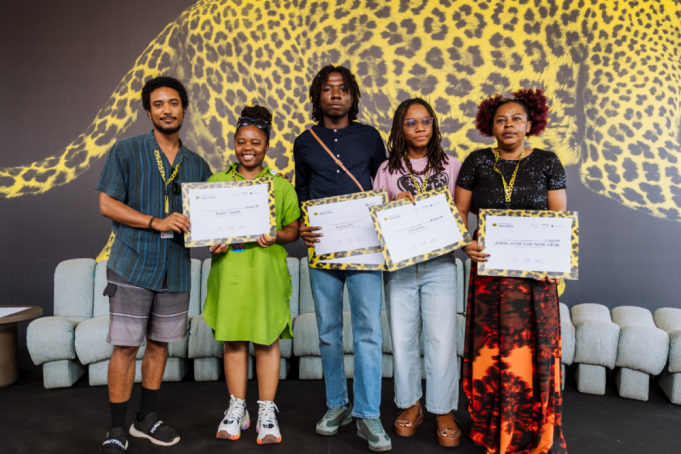
At the 78th Locarno Film Festival in Switzerland, the Open Doors platform, dedicated to supporting filmmakers from regions where artistic freedom is still in its early stages, has put into focus a new generation of African filmmakers. This year, Nigeria’s Kachifo (Till the Morning Comes) took centre stage, among other amazing projects, a first in African movie history.
The 23rd edition of the Open Doors platform supports African filmmakers with development, co-production, and visibility opportunities. Six projects received the main Open Doors Grant this year, to the tune of CHF 50,000, presented by Visions Sudest and the City of Bellinzona.
At the front of the pack was Kachifo, directed by Nigerian filmmaker Dika Ofoma and produced by Blessing Uzzi of Blu House Studios. The project received CHF 20,000 in the main grant. It was further impressed by also winning the ArteKino International Award (€6,000) and the Sørfond Award, including attendance at a prestigious pitching event in November.
Awarded the largest Open Doors Grant was Zimbabwe’s magical realist entry Black Snake, directed by Naishe Nyamubaya and produced by Sue-Ellen Chitunya, receiving CHF 25,000. Then came Diary of a Goat Woman (Journal intime d’une femme chèvre), directed by Azata Soro, produced by Nameïta Lica Touré, which won CHF 5,000.
These wins reflect more than cash prizes; they signal Locarno’s embrace of African storytelling rooted in tradition, identity, and boundary-pushing narratives. Kachifo, for example, writes a post-modern tale imbued with Nigerian mythology of old to scrutinise the reincarnation of a chief warrior and a maiden whose love is beyond social class. Black Snake, however, uses magical realism to broach concerns of concealment and the uncanny. In contrast, Diary of a Goat Woman blends documentary and animation in tracing a woman’s journey home to confront family and collective trauma.
READ MORE: Nnamdi Kanaga’s “Water Girl” and the New Wave of Mythmaking in Nigerian Cinema
The awards extend to the three films. The CNC Development Grant, a France-supported award, went to The Bilokos, from DR Congo and France, directed by Erickey Bahati and produced by Giresse Kassonga.
What unites these films is more than continental origin; they belong to a generation of African filmmakers reclaiming narrative control and reimagining classic genres. Open Doors Head Zsuzai Bankuti highlighted this moment as one of audacity, with filmmakers redefining African cinema, embracing transborder co-productions and pan-regional markets beyond Europe collectively.
And, once more, women were leading this shaping of new filmic terrain. Three of four principal winners—Kachifo, Black Snake, Diary of a Goat Woman are directed or produced by women, pointing to how female creatives are at the forefront of the new wave of African cinema.
Open Doors by Locarno serves a growing function, not just development funding, but legitimation and global exposure. Through grants, residencies, and festival screenings, these stories are reaching beyond small local audiences to international discussion.
As Kachifo and its peers advance in production and international attention, they’re achieving more than prizes. They’re asserting that Africa’s filmmakers, driven by mythology, memory, experimentation, and close-to-the-heart truth, must be seen, developed, and heard on the world’s most honoured stages.
About The Author
%s Comment
Leave a Reply Cancel reply
Related Articles
Sinners Breaks Records as Oscar Nominations Set Stage for Fierce 2026 Awards Race
The Academy of Motion Picture Arts and Sciences has announced the full...
ByWest Africa WeeklyJanuary 23, 2026Burna Boy, Rema Lead Nigerian Sweep at Afrima 2026
Nigerian artists dominated the 9th All Africa Music Awards (Afrima), which wrapped...
ByWest Africa WeeklyJanuary 15, 2026Burna Boy, Davido, DJ Maphorisa Lead AFRIMA 2026 Race
Africa’s biggest music awards ceremony is shaping up for an intense contest...
ByWest Africa WeeklyJanuary 10, 2026Funke Akindele Extends Box Office Streak as New Film Hits ₦1bn
Nollywood actress and filmmaker Funke Akindele has set a new box office...
ByWest Africa WeeklyDecember 31, 2025













Yes! Finally someone writes about African Story.